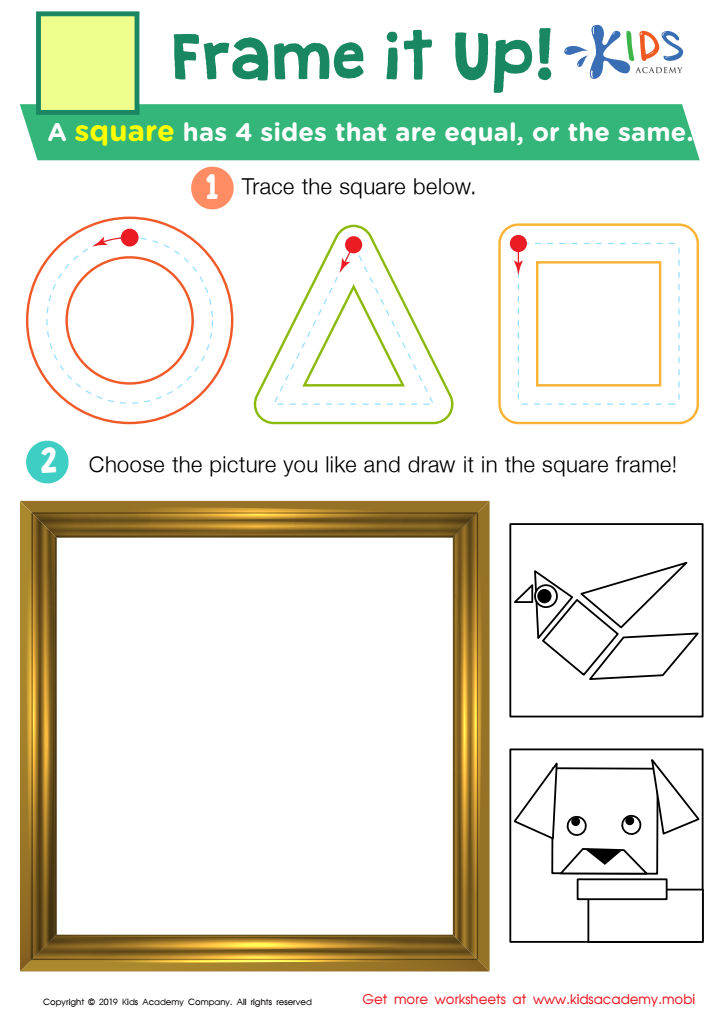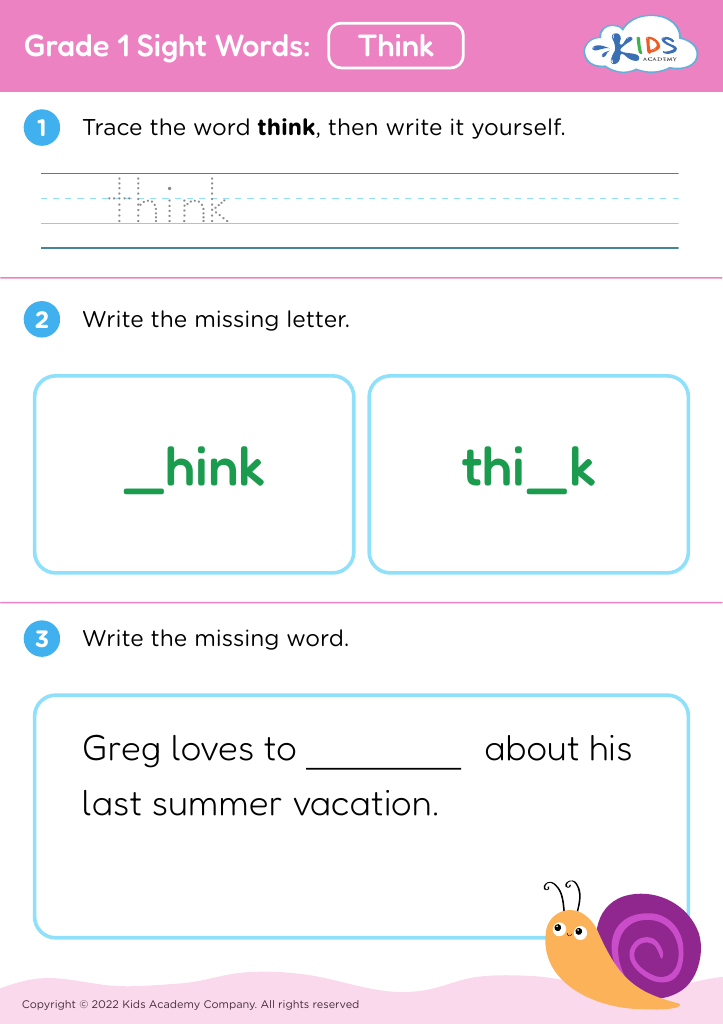Basic Addition Reading Worksheets for Ages 6-8
4 filtered results
-
From - To
Our "Basic Addition Reading Worksheets for Ages 6-8" are designed to make learning addition fun and engaging. These worksheets blend addition practice with interactive reading exercises to enhance comprehension and math skills simultaneously. Ideal for young learners, the activities feature colorful illustrations and age-appropriate content that captivates children's interest. Each worksheet progressively builds on foundational math concepts, guiding children through step-by-step exercises. Perfect for classroom use or at-home practice, these worksheets aim to boost children's confidence and proficiency in both reading and addition, laying a strong foundation for future learning success.


Baa Baa Black Sheep Printable


Frame it Up Worksheet
Parents and teachers should prioritize basic addition for children aged 6-8 because it is a foundational mathematical skill that sets the stage for future academic success. At this age, children's brains are highly receptive to new information, and mastering basic math concepts such as addition helps foster analytical and problem-solving skills.
Understanding addition facilitates group learning activities, promotes confidence, and encourages a positive attitude toward more complex mathematical tasks. Proficiency in basic addition aids in daily life situations, from counting objects to understanding time and money, demonstrating its practical importance. When children build a strong foundation in basic arithmetic early on, it makes advanced topics in math, science, and other disciplines more approachable later in their education.
Additionally, early competency in addition can be an indicator of overall academic performance, as math skills are closely linked to logical reasoning abilities. Encouraging and supporting children in learning addition fosters a growth mindset, instilling in them a belief in their ability to learn and conquer challenges. Therefore, dedicated attention from parents and teachers in this crucial learning phase ensures that children are well-equipped for more sophisticated academic pursuits, ultimately building a strong basis for lifelong learning.

 Assign to My Students
Assign to My Students


















